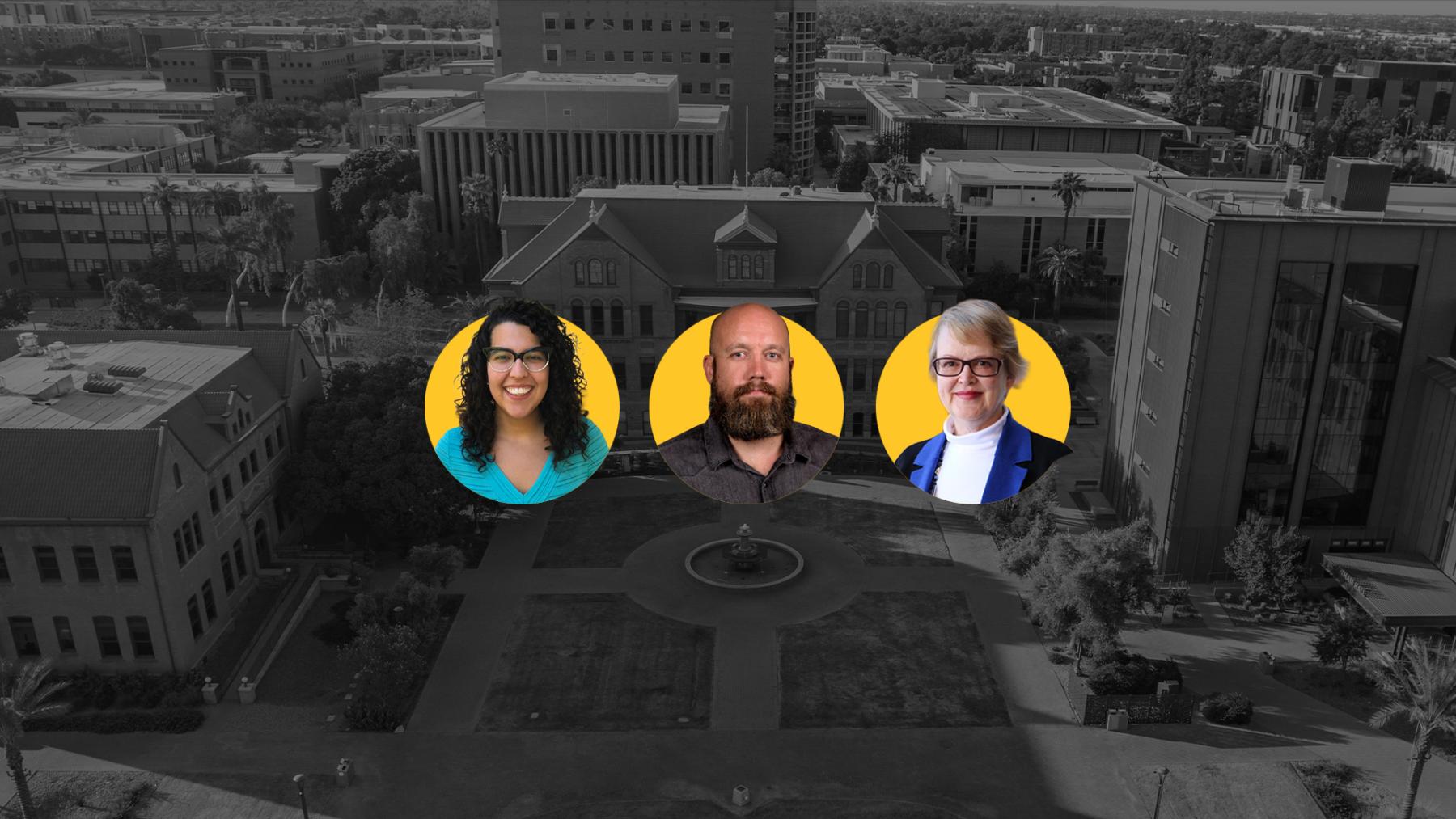
What’s a thesis or dissertation embargo, and when to use it?
As part of the degree requirements for theses and dissertations, students hold a public defense and their document is published electronically in the ASU Digital Repository and with ProQuest. Publication in the ASU Digital Repository is required; however, students may elect to delay (known as “embargo”) publication of their thesis/dissertation for a period of two years with support from their committee.
Why embargo a thesis/dissertation?
Delayed publication can protect:
- information of commercial value
- patentable rights
- sensitive or classified information
- academic or commercial press from acquiring publishing rights
- other relevant scholarly issues related to the release of your work
How can a student establish an embargo?
- Consult with committee at the time of the defense (or earlier) to decide whether an embargo is necessary.
- Complete the Delaying Publication of Thesis/Dissertation form and include the chair’s (or a co-chair’s) signature.
Please note that although the complete document will not be accessible in ProQuest and the ASU Digital Repository, discoverable information such as the title, author and the abstract will appear in these repositories and cannot be removed. It is important that you are transparent with any prospective publishers if you are using content from your thesis, dissertation or culminating document.
To ensure that the embargo form has been received, the ASU ProQuest submission portal does not provide an option for students to directly select an embargo. After submitting the embargo form and uploading the document in ProQuest, the Graduate College format review team updates the publication release date in the student's submission before delivering the document ProQuest. If a student submits their document in ProQuest before completing the embargo form, the student should note the embargo request in the "Notes to Administrator" section to ensure the document is not released before the embargo form is applied.
If approved, an embargo allows for a temporary delay of the publication of your document for up to two years through the ASU Digital Repository, KEEP. Embargo requests made after publication cannot guarantee non-viewing or downloading.
Other considerations
In unique cases, students may be granted an embargo of their document for an additional two years by emailing [email protected] before the original embargo expires. The maximum allowable embargo period for the ASU Digital Repository is four years, while ProQuest may allow for an indefinite embargo. Those requests are to be emailed to [email protected].
These embargo guidelines apply to other culminating experience documents (such as bound documents and DMA research papers) that are required to go through format review and submission to ProQuest. Please check with your academic unit if unsure if this applies to your culminating experience.
Embargo questions can be directed to [email protected].
More stories from the Graduate Insider

Graduate education is an adventure
About eighteen months ago, I set out on a journey walking the islands of the Dodecanese during a sailing trip in Türkiye and Greece with several friends. Along the way, I found winding paths, timeless villages and breathtaking views of sea and sky. That experience got me thinking about how adventure shows up in other parts of life, especially in learning.

From practice to presentation: How to deliver a winning faculty job talk
Giving a job talk can feel like the most high-stakes presentation of your academic job search. It’s not just a research seminar—it’s your opportunity to demonstrate vision, communication skills, and fit within a department. In a recent Lunch and Learn, faculty members Associate Professor in School of International Letters and Cultures, Anita Huizar-Hernandez, Professor in School of Life Sciences Jeffrey Jensen, and Professor in Department of Physics Patricia Rankin shared concrete strategies to help graduate students and postdocs succeed as future faculty candidates.

Mentoring matters: Mentoring students through impostor syndrome
Graduate education can be an exhilarating journey — but for many students, it also brings moments of self-doubt and uncertainty. In our recent Mentoring Matters panel, “Mentoring Students Through Impostor Syndrome,” Graduate College Senior Associate Dean Dr. Lisa Anderson sat down with Dr. Rebecca Wachs, Associate Professor in the School of Biological and Health Systems Engineering, and Dr.